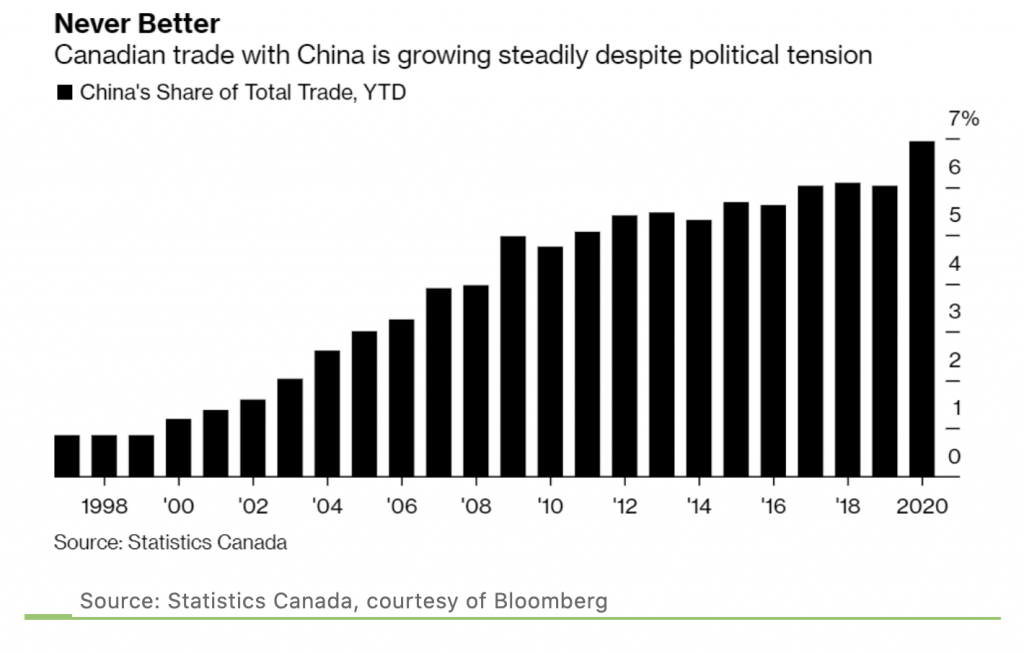Canadian Trade and Investment with China Increasing Despite Tensions
The media often portrays things as being negative. Therefore, it’s easy to think that things are worse than they are. The media exists to sell eyeballs in the form of advertising to companies.
The media will write stories about what people want to believe. People want to hear about arrests, companies getting banned, and threats of military wars.
Luckily, there are statistics to show the true story. You will see later in this article that trade has increased between China and Canada in the past two years. This year was a new record, with China’s share of total trade being around 7%. This is for both imports and exports. Last year it was at 6%, and back in 1998, it was 1%.
It is obvious that Canadian and Chinese companies do not want to get involved in political fights. Entrepreneurs are not politicians; they just want to make money for their shareholders and make the world a better place.

Companies must be flexible during SARS-2
With COVID-19 destroying the global economy, Canadian companies are looking for opportunities to sell products and services wherever they can. Canadian companies that sell wine, organic products, and agricultural goods are doing high volumes of business with China.
Politics are very important in China, but they have 1.4 billion people that need to be fed and provided with a certain standard of life. China needs Canada’s wood, fish, gas, and canola. Trade and investment have continued, and the media and the public have not noticed.
China also continues to look for innovative technologies. Western countries like England and Canada have always been a leader in providing those technological services. In short, China wants what we have.
China is focusing on innovation and its participation in technological development. It often accomplishes this via partnerships with western companies by investing in them.
It’s important that any Canadian company expanding into China speak to a business lawyer to make sure their intellectual property is secure, that they are compliant with local tax laws, and that their corporate structure is correct.
My internet company in Canada provides services using technology to law firms. When someone wants to hire a lawyer, they come to us. Then we find the person the right law firm to hire depending on their budget, area of legal need, and geographical area.
The legal industry is broken, and I want to fix it. The legal system in China is very new, and they can benefit from Canada’s experience in building one of the best justice systems in the world.
Raising investment to expand your company
When I decided I wanted to expand to China, I connected with the Nanjing Investment Bureau through the CCBC and found that they are very open to working with Canadian companies. Even though they are a government organization, they were extremely friendly, approachable, and helpful.

Credit: Alistair Vigier in Beijing, China
Canada and China’s diplomatic relations
China and Canada have had diplomatic relations since 1970. Fifty years ago, England was the only western country to have relations with China. Those relations were normally regarding discussions around Shanghai and Hong Kong.
While diplomatic relations between the two countries have fallen apart, Canadian and Chinese companies and investors continue to work closely together.
Canada and China don’t need to be close friends. Instead, they can agree to disagree on several issues. The two countries should let their politicians do what they do best and argue.
Businesses in China and Canada should not suffer. Entrepreneurs should be free to do business with each other. China is a massive market for Canadian companies. And Canada has a lot to offer China in terms of the highest quality products and innovative technology.
Alistair Vigier (韦理德) is the CEO of ClearWay Law, a Canadian and Chinese company.
